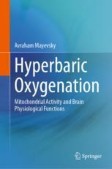Search
Search Results
-
Neuroprotection of Stem Cells Against Ischemic Brain Injury: From Bench to Clinic
Neurological injuries can have numerous debilitating effects on functional status including sensorimotor deficits, cognitive impairment, and...

-
Exosomes from Hypoxia-treated Mesenchymal Stem Cells: Promoting Neuroprotection in Ischemic Stroke Through miR-214-3p/PTEN Mechanism
Stroke stands as the second leading cause of death globally, surpassed only by ischemic heart disease. It accounts for 9% of total worldwide deaths....

-
Ischemic preconditioning modulates the DNA methylation process of the rat heart to provide tolerance to withstand ischemia reperfusion injury and its associated mitochondrial dysfunction
DNA methylation plays a crucial role in the pathogenesis of myocardial ischemia reperfusion injury(I/R) and the I/R injury can be combated...

-
High-fat diet-induced mitochondrial dysfunction is associated with loss of protection from ischemic preconditioning in renal ischemia reperfusion
Consumption of high-fat diet (HFD) promotes mitochondrial dysfunction and the latter act as a critical factor in determining the severity of...

-
Ischemic limb preconditioning-induced anti-arrhythmic effect in reperfusion-induced myocardial injury: is it mediated by the RISK or SAFE pathway?
The mechanism for limb ischemic precondition (RLIPC)-induced suppression of reperfusion arrhythmia remains unknown. The purpose of this study was to...

-
Hyperbaric Hyperoxia in Patients After Chest Injury or Ischemic Stroke
Hyperbaric oxygenation (HBO2) is an important treatment given to various groups of patients exposed to pathologic situations (i.e., carbon monoxide...
-
The relationship between neurogenic dysphagia, stroke-associated pneumonia and functional outcome in a cohort of ischemic stroke patients treated with mechanical thrombectomy
IntroductionMechanical thrombectomy (MT) is an established treatment approach in acute ischemic stroke patients with large vessel occlusion (LVO)....

-
Effects of acetazolamide combined with remote ischemic preconditioning on risk of acute mountain sickness: a randomized clinical trial
BackgroundWe aimed to determine whether and how the combination of acetazolamide and remote ischemic preconditioning (RIPC) reduced the incidence and...

-
Remote but not Distant: a Review on Experimental Models and Clinical Trials in Remote Ischemic Conditioning as Potential Therapy in Ischemic Stroke
Stroke is one of the main causes of neurological disability worldwide and the second cause of death in people over 65 years old, resulting in great...

-
Effects of precondition α2-adrenoceptor agents on memory- and anxiety-related processes in the transient cerebral ischemic rats
Neurological evidence for the neuroprotective function of α 2 -adrenoceptors in the cerebral ischemia is inconsistent. It is not examined how...

-
Lycium barbarum polysaccharide inhibits ischemia-induced autophagy by promoting the biogenesis of neural stem cells-derived extracellular vesicles to enhance the delivery of miR-133a-3p
BackgroundNeural stem cell-derived extracellular vesicles (NSC-EVs) mediated endogenous neurogenesis determines a crucial impact on spontaneous...

-
Cerebral Ischemia/Reperfusion Injury and Pharmacologic Preconditioning as a Means to Reduce Stroke-induced Inflammation and Damage
Stroke is one of the leading causes of death and long-term serious disability. Current therapeutic strategy is limited to thrombolytic agents,...
-
Endothelial NOX5 overexpression induces changes in the cardiac gene profile: potential impact in myocardial infarction?
Cardiovascular diseases and the ischemic heart disease specifically constitute the main cause of death worldwide. The ischemic heart disease may lead...

-
Exosomes derived from heat shock preconditioned bone marrow mesenchymal stem cells alleviate cisplatin-induced ototoxicity in mice
NOD-like receptor family pyrin domain containing 3 (NLRP3) inflammasome contributes to the development of cisplatin-induced ototoxicity. Whether heat...

-
Exercise preconditioning promotes myocardial GLUT4 translocation and induces autophagy to alleviate exhaustive exercise-induced myocardial injury in rats
Exercise preconditioning (EP) is a line of scientific inquiry into the short-term biochemical mediators of cardioprotection in the heart. This study...

-
Transfection of hypoxia-inducible factor-1α mRNA upregulates the expression of genes encoding angiogenic growth factors
Hypoxia-Inducible Factor-1α (HIF-1α) has presented a new direction for ischemic preconditioning of surgical flaps to promote their survival. In a...

-
Mini review: Current status and perspective of S100B protein as a biomarker in daily clinical practice for diagnosis and prognosticating of clinical outcome in patients with neurological diseases with focus on acute brain injury
Prognosticating the clinical outcome of neurological diseases is essential to guide treatment and facilitate decision-making. It usually depends on...
-
Gasotransmitters and noble gases in cardioprotection: unraveling molecular pathways for future therapeutic strategies
Despite recent progress, ischemic heart disease poses a persistent global challenge, driving significant morbidity and mortality. The pursuit of...

-
Use of mechanical preconditioning for free flaps in a swine model
BackgroundMechanical ischemic preconditioning (MIPC) is defined as applying brief periods of ischemia before tissue reperfusion. This mechanism...

-
Ischemic Preconditioning
Brief episodes of ischemia and reperfusion precondition the myocardium and reduce the infarct size and following sustained ischemia. This phenomenon...
